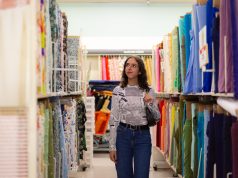A group of experts discussed the history of the LGBTQ community last Thursday, saying it has been forgotten in South Florida.
University of Massachusetts Professor Julio Capo, the award-winning author of “Welcome to Fairyland,” organized and moderated the discussion panel held at the HistoryMiami Museum.
Capo said that many events involving the gay community happened in Miami in the 1970s, including the first Gay Rights Parade in 1978, but nobody talked about it.
“The history of the LGBTQ community has never been transposed to other generations,” he said. “I have come to the idea that our history is lost.”
Capo said three gay bars that existed in Miami in the 1970s. He also said that knowing about events, such as the Gay Rights Parade in 1978, encouraged him to organize this panel.
“I was able to know all these events thanks to some studies I did to write my book,” he said. “Otherwise nobody would know about these things.”
Dani Dominguez was a panelist and is member of the Yes Institute, an organization that helps prevent suicide among the young members of the LGBTQ community. She also strives to preserve the history of gays in South Florida because she believes it is an issue.
“Let’s forget about what can happen in 10 years from now,” Dominguez said. “We should be asking ourselves what can we be demanding to resolve this issue.”
The panelists said that ignoring the many gay marches that happened in the 1970s is preventing the LGBTQ community from being discussed in political debates in South Florida.
Florida International University Professor Alpesh Kantilal Patel, who was one of the panelists, said that when he is invited to conferences with politicians he feels excluded because gay issues are not considered to be important in the history of South Florida.
They also compared Miami with New York, saying that Miami has much to offer, but it is an “understudy city.” They believe the gay rights movements in Miami have been ignored in the overall narrative.
The panelists concluded that South Florida’s geography makes it hard for to mobilize the gay community. The cities in South Florida are far from one another and public transportation is not efficient, they said.
Michael Weiser, chair of the board of trustees for HistoryMiami Museum, congratulated Capo for organizing the event. Weiser said that this kind of event is important to the community.
“Just as important it is for us to let football players have their meeting in here, I think it is also important to let the LGBTQ community have this kind of event to empower them.”
































